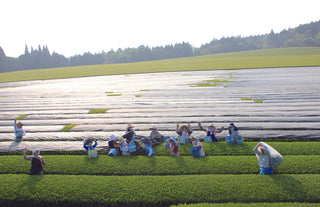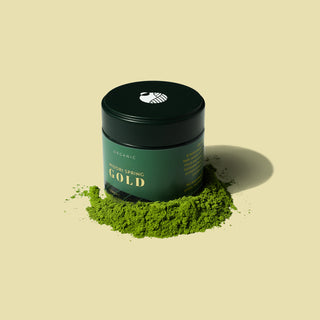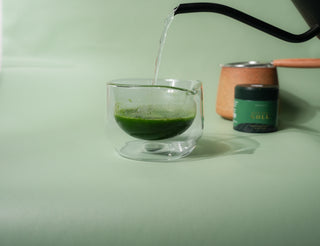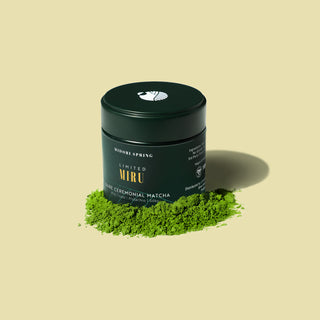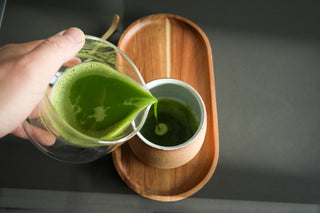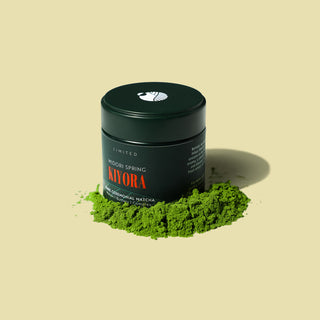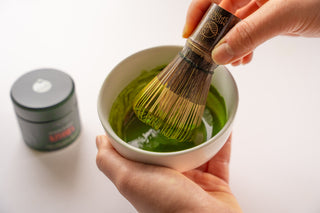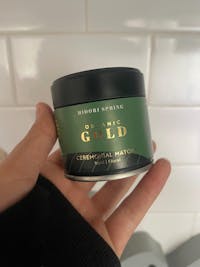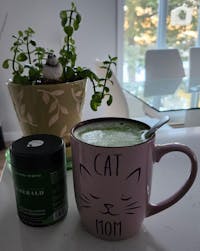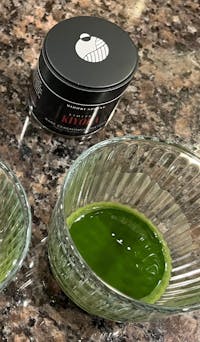So what's better - organic or conventional (non-organic) Matcha and Tea? This topic isn't just about preference; it touches on broader questions that many of you have raised. Which one tastes better? Is there a health benefit to choosing one over the other? And why does it seem like there's a significant price difference between the two? These questions are crucial, especially as we become more conscious of what we're putting into our bodies and how it impacts our health and the planet. So here are key points we gathered from our Japanese partners and friends that can help you make an informed decision.
Why does shade matter?
Matcha's unique cultivation process is crucial to its character. The key element: Shade. Before harvest, tencha (the leaves used for Matcha) is shielded from direct sunlight to enhance its amino acids, the secret sauce behind Matcha's sweet and savory (umami) flavor. Too much sunlight, however, converts those acids into catechins, making the tea bitter. So, more shade equals less bitterness and more of that creamy umami we all love.

Fertilizer dilemma: organic vs. non-organic (conventional) process
The role of fertilizers becomes particularly important when the tea plants are deprived of sunlight during shading. This is because, during the final stages of growth, the plants are deprived of direct sunlight to enhance their amino acid profile, which gives Matcha its characteristic sweet umami flavor. Without sunlight, the plants rely heavily on soil nutrients, primarily nitrogen, to develop these vital amino acids.
Organic fertilizers, while environmentally friendly, sustainable, and capable of producing excellent results, sometimes fall short in delivering the concentrated nitrogen needed for dense amino acid development. This is where conventional farming methods come into play. By using a specialized mix of natural fertilizers, which may not all be certified organic, conventional farming practices can pinpoint and fulfill the specific nutritional needs of shade-grown tea plants. This approach is key to cultivating tencha leaves rich in nutrients, setting the stage for Matcha with a complex, richer umami flavor. Master growers opt for conventional practices to bring out a Matcha's full potential, crafting a product that reflects their unparalleled expertise and the rich terroir of their farms. See our Kiyora and Miru for our best non-organic conventional farmed limited Matcha.
Despite this, it's important to note that organic Matcha can still be of exceptional quality. Our Tenryu Matcha is a prime example of this, showcasing that with expert care and the right conditions, organic fertilizers can indeed lead to the production of superb Matcha. Master farmers dedicated to organic practices manage to bring out the rich flavors and aromas that Matcha lovers cherish, proving that organic Matcha, while facing certain challenges, can stand toe-to-toe with its conventionally farmed counterparts in terms of taste and quality.
Which tastes better?
When it comes down to flavor, conventional Matcha tends to win the battle of flavor and taste. The strategic use of fertilizers under conventional methods supports the plants through their crucial shaded phase, bolstering their amino acid profile. This results in a Matcha that's rich in umami, offering a depth of flavor that's hard to achieve with purely organic practices.

Does conventional Matcha have a lot of pesticides?
When it comes to conventional Matcha, concerns about pesticides can pop up. Here's the deal: Japan has very strict regulations on pesticide use in tea cultivation. This ensures that any pesticides applied are done so in minimal amounts and with great care, maintaining the health of the plants and the well-being of us tea drinkers. Additionally, seasoned master growers, with generations of experience, excel in producing exceptional teas with minimal pesticide use, showcasing their commitment to quality and tradition in every cup.

Understanding the costs
Although organic farming fetches a high cost due to its labor-intensive nature and land requirements, it's the exquisite conventional Matchas that often command the highest prices. The pricing of Matcha reflects more than just its organic or conventional status; it's also about rarity and the expertise behind its creation. Rare, limited batches of conventional Matcha, cultivated by esteemed tea masters, often command higher prices than organic varieties. This is due to the meticulous attention and years of expertise required to produce these exceptional teas. Tea masters like those behind our Kiyora and MIRU blends apply generations of knowledge to enhance the flavor profile of Matcha, creating a product that's unparalleled in quality. These limited releases, often from small, specialized plots, offer a unique terroir that can't be replicated, making them highly sought after by enthusiasts and collectors alike.

Most Japanese don't drink organic
Interestingly, the organic label doesn't carry as much weight in Japan, our Matcha's homeland. The trust in local farming practices and regulatory standards means that most Japanese consumers are satisfied without the organic certification. This trust extends to the understanding that farmers use fertilizers and pesticides responsibly, ensuring the tea is of high quality without the need for an organic label.

What does all this is mean for you? It's about finding what fits your taste and values. If you prefer the richer, umami-packed flavor, conventional Matcha might be your go-to. But if organic farming practices align more closely with your lifestyle, there are quality organic options out there, like our Organic Selection.
Selecting between organic and conventional Matcha isn't a black-and-white decision; it’s about understanding the nuances behind each and making a choice that feels right for you. As we continue to explore and enjoy Matcha, let’s appreciate the craftsmanship and dedication that goes into every cup, organic or not.
